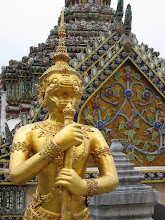Apannaka Sutta Summary
VAMSAPALA , ID. 5301201125
There are some recluses
and Brahmins whose teaching and view is this: ‘There is no giving, offering, or
sacrifice, no fruit of good and evil deeds, there is neither this world, nor
another world, there is no mother nor father, no spontaneously arisen beings,
and no recluses or Brahmins who, having practised correctly, realise the truth
about this world and the other world by direct knowledge, and reveal this truth
to others.
If what these recluses
and Brahmins say is true, and there is another world, then on the dissolution
of the body after death they will be reborn in a happy destination, or in
heaven. Even if there is no other world, this good person is praised by the
wise as virtuous and for holding the right view of moral responsibility. He has
rightly undertaken this incontrovertible teaching in a two-sided way that
excludes the unwholesome alternative.
The Buddha was a
teacher who illuminated the way like a lamp illuminates a path in the darkness.
The disciple must walk on that path with his own efforts. The teacher cannot
carry him on his shoulders, he only clarifies the right method of practice. A
disciple should depend on himself for protection from danger, but he should
also depend on the Dhamma as a guide and protection. Buddha often likened himself
to a doctor, offering a treatment for the sufferings of the heart. He could not
directly show newcomers the state of health - the state of nirvana - but if
they followed his teaching, they could see it for themselves. The first
indications that he was awakened - and that awakening was a good thing - came
with entering the stream.
One of these means was
the pragmatic argument, which differs from empirical arguments as follows. An
empirical argument presents facts that logically imply that a must be true or false. A pragmatic
argument focuses not on the facts related to a, but on the behavior that can be
expected from a person who believes or rejects a. The Buddha's main pragmatic
argument is that if one accepted his teachings, one would be likely to pay careful
attention to one's actions, so as to do no harm.
He abstains from idle chatter. He speaks what is
factual, what is in accordance with the goal. He speaks words worth treasuring,
seasonable, reasonable. He abstains from damaging seed and plant life. He
abstains from accepting male and female slaves. He abstains from running
messages. He abstains from mutilating,
executing, imprisoning, highway robbery, plunder, and violence.







 10:57 PM
10:57 PM
 mr.vam
mr.vam

 Posted in:
Posted in:  Translate
Translate

0 comments:
Post a Comment